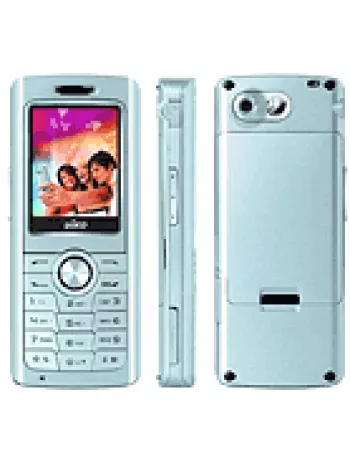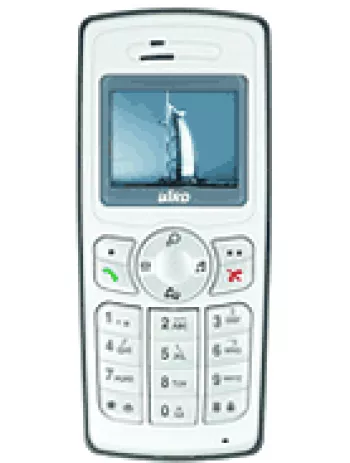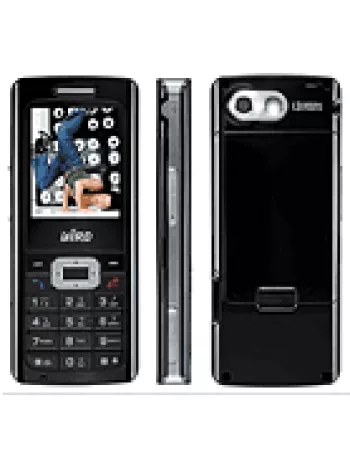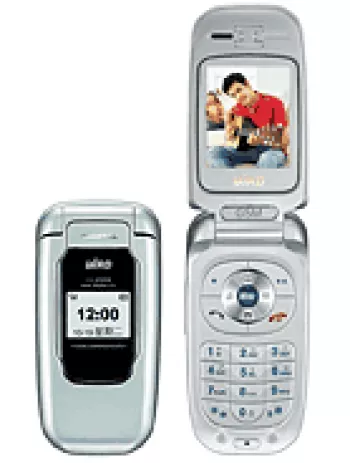
Design and Build
The Bird S698 was announced in the third quarter of 2005, though unfortunately, it never made it to the market as its launch was ultimately cancelled. Nonetheless, its design offers insight into the mobile trends of its time. With dimensions of 104.3 x 15.7 x 44 mm and weighing only 73 grams, the Bird S698 was compact and lightweight, fitting comfortably into the pocket. The device was built to house a Mini-SIM card, a common choice during that era.
Display
The Bird S698 boasted a CSTN display, capable of showing 65K colors—a standard specification for feature phones at the time. Although the exact size of the screen was not specified, it had a square resolution of 128 x 128 pixels. This design, while quite basic compared to modern standards, was functional enough for the relatively simple tasks that the phone was intended to perform.
Network Technology
This device was designed to operate on GSM networks, specifically on the 900 and 1800 bands, which were commonly used worldwide for voice communication. However, it should be noted that the phone did not support GPRS or EDGE services, limiting it to voice calls and text messages (SMS) without any mobile data capabilities.
Memory and Storage
The Bird S698 was equipped to handle basic contact storage, with a phonebook capacity of up to 100 entries. Additionally, it could keep track of 20 dialed, 20 received, and 20 missed calls. However, it did not offer any expandable memory slot for additional storage, reflecting the limited requirements for data storage in the feature phones of that time.
Camera
In line with many feature phones from the early 2000s, the Bird S698 did not feature a camera. The absence of photographic capabilities meant that users relied on the phone primarily for communication purposes rather than multimedia functions.
Sound Features
Audio features on the Bird S698 were minimal, offering polyphonic ringtones (up to 16 tones) and vibration alerts. However, it lacked a loudspeaker and a 3.5mm headphone jack, which limited its utility for on-the-go listening or hands-free communication.
Communication and Connectivity
The Bird S698 did not come with many of the connectivity options we take for granted today. It had no WLAN, Bluetooth, positioning technology, or radio. Essentially, it focused on providing basic mobile telephony services without additional modern connectivity features.
Additional Features and Functionality
The phone supported SMS messaging and included two basic games for entertainment, keeping with the simplicity ethos of feature phones. It did not support Java applications, which would have otherwise expanded its functionality through third-party apps.
Battery Performance
Powered by a removable Li-Ion battery with a capacity of 900mAh, the Bird S698 offered respectable battery life for a feature phone. It was capable of providing up to 75 hours of standby time and up to 3 hours of talk time, which was adequate given its limited functionalities and lack of power-hungry features like cameras or high-resolution screens.
Conclusion
The Bird S698 was a representation of mobile phone technology in the mid-2000s, offering a basic set of features that prioritized communication through calls and messages. Its design and feature set were typical of feature phones before the widespread adoption of smartphones. Given its cancelled status, the Bird S698 remains a footnote in the history of mobile technology, showcasing the iterative design processes and market dynamics of its time.
Main Features of Bird S698
- Lightweight design with only 73 g (2.57 oz).
- Compact body dimensions of 104.3 x 15.7 x 44 mm.
- GSM 900 / 1800 network compatibility.
- CSTN display with 65K colors.
- Supports up to 100 phonebook entries.
- Polyphonic (16) ringtones with vibration alert option.
- Removable Li-Ion battery with up to 75 hours of standby time.
- Up to 3 hours of talk time.
- Includes two built-in games for entertainment.
Disadvantages of Bird S698
- Limited network technology: Only supports GSM 900/1800 bands.
- No support for GPRS or EDGE connectivity.
- Launch status: The device was cancelled and never released.
- Lack of advanced display: CSTN display with only 65K colors.
- No expandable memory: No card slot for additional storage.
- Limited phonebook capacity: Only 100 entries can be stored.
- No camera feature available.
- No loudspeaker functionality.
- No 3.5mm audio jack for headphones.
- Absence of modern communication features: No WLAN, Bluetooth, or USB connectivity.
- No positioning or radio features.
- Basic messaging and browser support: SMS only, with no browser included.
- No Java support for additional applications or games.
- Short battery life: Stand-by time up to 75 hours and talk time up to 3 hours.
- Very lightweight on features compared to modern standards.
- No color options provided.

View Also
More Phones
All Rights Reserved +14267 Phones © Mobilawy 2025

























